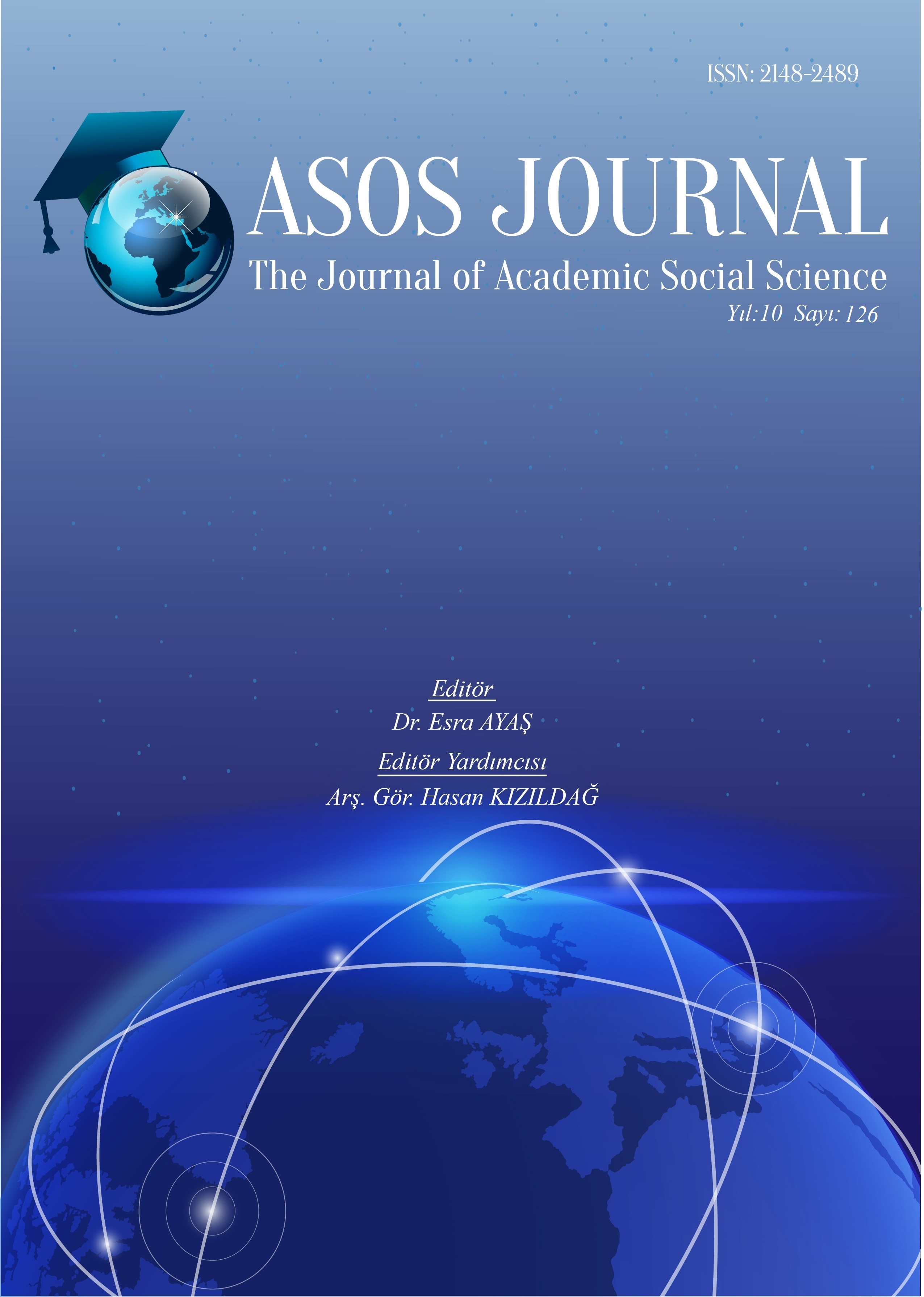Author :
Abstract
Keywords
Abstract
Integrated Reporting (IR), which represents the newest formation in the field of Corporate Social Disclosure (CSD), was born as a synthesis of a broad application of the concept of integration from the past to the present, as well as many other forms of voluntary disclosure that include them. However, today, the lack of a common understanding regarding the purpose of the changes in Corporate Reporting (CR) and the questioning of the suitability of the new report format of corporate reporting are the biggest difficulties in the implementation and functioning of IR. Considering all these factors, the importance of understanding the facts and formations in question and the links between them becomes even more inevitable for the successful implementation of IR. The aim of the study is to carry out a conceptual analysis by presenting the facts and formations that have been significantly influential in the development process of IR, which is defined as the last point of CR today, within the framework of historical perspective, and thus to contribute to the literature in order to make the IR philosophy understandable.
Keywords
- 1 Seri No’lu Muhasebe Sistemi Uygulama Genel Tebliğ, 26.12.1992 Tarih ve 21447 (M) Sayılı Resmi Gazete.
- AACA. (2013). "What do investors expect from non-financial reporting?".
- Adams, Sarah, and Roger Simnett. "Integrated Reporting: An opportunity for Australia's not‐for‐profit sector." Australian Accounting Review 21.3 (2011): 292-301.
- Aktan, Coşkun Can, and Deniz Börü. "Kurumsal sosyal sorumluluk: işletmeler ve sosyal sorumluluk." İstanbul: İGİAD İktisadi Girişim ve İş Ahlakı Derneği Yayınları (2007).
- Bananuka, Juma, Zainabu Tumwebaze, and Laura Orobia. "The adoption of integrated reporting: a developing country perspective." Journal of Financial Reporting and Accounting (2019).
- Başar, A. B., (2014), “Kurumsal Sosyal Sorumluluk Raporlaması ve Finansal Performans Arasındaki İlişki Borsa İstanbul’da İşlem Gören Kimya-Petrol-Plastik Sektörü Şirketleri Üzerine Bir Araştırma”, Yönetim ve Ekonomi Dergisi, C.21, S.2, (59-72).
- Cerbone, Dannielle, and Warren Maroun. "Materiality in an integrated reporting setting: Insights using an institutional logics framework." The British Accounting Review 52.3 (2020): 100876.
- Dumay, John, et al. "Integrated reporting: A structured literature review." Accounting Forum. Vol. 40. No. 3. Taylor & Francis, 2016.
- Dumay, John, et al. "Barriers to implementing the international integrated reporting framework." Meditari Accountancy Research (2017).
- Eccles, Robert G., and Daniela Saltzman. "Achieving sustainability through integrated reporting." (2011).
- Eccles, Robert G., and George Serafeim. "Accelerating the adoption of integrated reporting." InnoVatio Publishing Ltd (2011).
- Ergenç E,Kırbaç G (2021). Hospital Selection Factors For Private Doctors Concerning Their Surgery Operations Services: An Application Of Fuzzy Analytic Hierarchy Process (FAHP). Üçüncü Sektör Sosyal Ekonomi, 56(3), 1374 - 1397. Doi: 10.15659/3.sektorsosyal-ekonomi.21.08.1568
- Feng, Tianyuan; Cummıngs, Lorne; Tweedıe, Dale. Exploring İntegrated Thinking İn İntegrated Reporting–An Exploratory Study İn Australia. Journal Of Intellectual Capital, 2017, 18.2: 330-353.
- Frias-Aceituno, José V., Lázaro Rodríguez-Ariza, and Isabel M. García-Sánchez. "Is integrated reporting determined by a country's legal system? An exploratory study." Journal of cleaner production 44 (2013): 45-55.
- Hubbard, Graham. "Measuring organizational performance: beyond the triple bottom line." Business strategy and the environment 18.3 (2009): 177-191.
- IFAC, IIRC, AICPA ve CIMA. (2020). The CFO and Finance Function Role in Value Creation.
- IRC SA. (2018, August). Preparing an Integrated Report: A Starter's Guide (Updated) AN. Integrated Reporting Committee (IRC) of South Africa, 1-35.
- King Report On Corporate Governance For South Africa, 2009. http://www.library.up.ac.za/law/docs/king111report.pdf
- King Report On Corporate Governance For South Africa, 2016 https://c.ymcdn.com/sites/www.iodsa.co.za/resource/resmgr/king_iv/King_IV_Report/I oDSA_King_IV_Report_-_WebVe.pdf
- NIBR. (2018). Integrated Reporting for SMEs: Implementation Guidance.
- NIBR. (2016). Handbook On Integrated Reportıng (IR): Focus On Integrated Thinking.
- Pistoni, Anna, and Lucrezia Songini. "Key Tools and Frameworks for Sustainability Disclosure', Sustainability Disclosure: State of the Art and New Directions (Studies in Managerial and Financial Accounting, Volume 30)." (2015): 1-24.
- SAICA (2015). Integrated Thinking: An exploratory survey https://www.saica.co.za/Portals/0/Technical/Sustainability/SAICAIntegratedThinkingLa ndscape.pdf
- Sermaye Piyasası Kurulu Araştırma Raporu, (2009), Kurumsal Sosyal Sorumluluk Uygulamaları Kapsamında İMKB-30 Endeksi Şirketleri.
- Solomon, Jill, and Warren Maroun. "Integrated reporting: the influence of King III on social, ethical and environmental reporting." (2012).
- Ubay, B. (2020), Dijital Ekonominin Dijital Vergi Cennetlerinin Gelişimine Etkisi, Afyon Kocatepe Üniversitesi İktisadi ve İdari Bilimler Fakültesi Dergisi- Haziran / 2020, 22(1), ss: 28- 44.
- UN. (2015). Transforming our world: The 2030 agenda for sustainable development. (https://www.unescwa.org/sites/www.unescwa.org/files/un_resolutions/a_res_70_1_e.p df)
- WBCSD. (2014). Future Leaders Program: Integrated Reporting in South Africa. From Concept to Practice.
- White, Allen L. "New wine, new bottles: the rise of non-financial reporting." Business for Social Responsibility 6 (2005): 01-06.
- WICI . (2016). Intangibles Reporting Framework.
- Yanık, S., Ve Türker, İ. Sürdürülebilirlik ve sosyal Sorumluluk Raporlamasındaki Gelişmeler (Tümleşik Raporlama). İstanbul Üniversitesi Siyasal Bilgiler Fakültesi Dergisi, 47, 2012.
- http://eur-lex.europa.eu/legal-content/EN/TXT/?uri=CELEX:32014L0095#ntr3- L_2014330EN.01000101-E0003
- https://www.integratedthinking.it/wp-content/uploads/2016/11/NIBR-Handbook-on-Integrated- Thinking-published-news-brief-2016.10.31....pdf
- https://rsmgcblog.files.wordpress.com/2018/02/integrated-reporting-why-about-how-to-guide- rsm-gc.pdf





